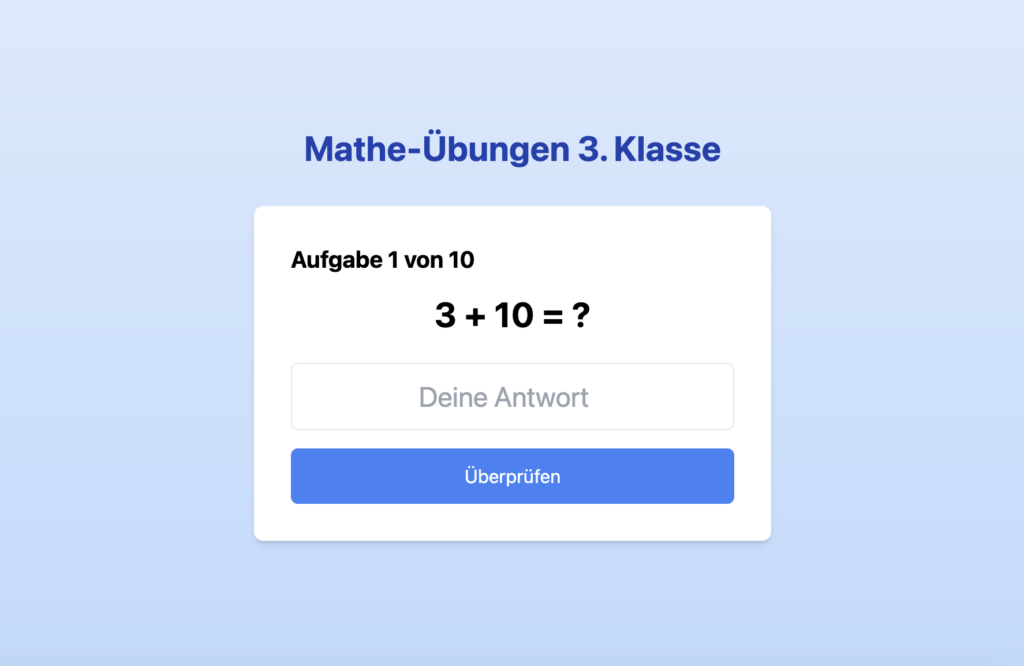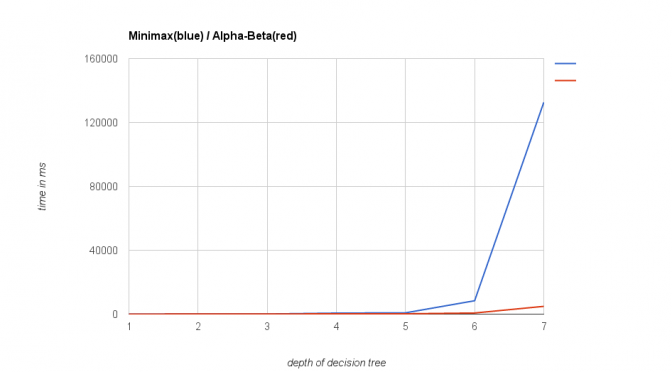I recently had some spare minutes while my wife was driving us to the family Christmas meetup. This time was great for a quick AI coding challenge to see what is possible within a few minutes. I tried to build a quick math game website for my son (who was in the back seat). There had been no preparation or dry run beforehand; this challenge just took a few minutes. I used the website bolt.new, which allows creating a website by just chatting with the AI. Here is the screen recording:
First impressions
Wow – that was quick and easy. I was impressed with how great this worked with only a few statements. The resulting website looks simple and clean, just what I had in mind. The AI made one mistake: the task did not change; it was always the same. However, it was perfectly straightforward to fix that.
There was another “bug” that is not visible in the screen recording: The tasks could have negative results. That should not happen for a third grader. Also, this was perfectly easy to fix with another chat message.

Btw, here is the deployed app.
Comparison to other tools
Like most of us, I have been working with AI bots like ChatGPT, Gemini, and Copilot before. There is a huge difference between bolt.new and those bots. Talking to a chatbot means you get helpful responses, but the duty of changing code remains entirely on your side. bolt.new does everything for you.
It is refreshing to work like this because you don’t have to work on boilerplate code anymore. This works perfectly for creating quick prototyping projects. The speedup in development is huge. This poses the question if AI can be a silver bullet for improving development performance.
The downside is that you barely look at the code anymore. It is not clear what happens underneath, and security problems might sneak in unnoticed.
Predictions
So how will AI change development in the near future? I am sure that we will see many more tools that don’t just suggest changes but implement them right away. The speedup in development performance is too good not to use it.
Does it mean developers will go out of business, and the dev process can be done entirely by a Product Owner? Clearly no, because it is still necessary to tell the AI in technical detail what it should do. It is also vital to review changes thoroughly and keep the architecture in a human mind.
However, we will certainly require fewer developers, especially for working on boilerplate code. There has been a natural progression from low-level to high-level languages for many decades. Starting from machine code, we went up to Assembler, languages like C, Java, and now Python/Kotlin. The AI interface will be another step up. Our high-level language code can be seen like an executable created by the AI compiler.
Beware of complexity
One word of caution, though. Even before the rise of AI, it was often more work to maintain a feature than to implement it in the first place. When development speed increases significantly, the same is usually true for complexity inside applications. I have seen lots of projects move fast in the beginning but slow down tremendously when carrying lots of (feature, safety, test, process) requirements.
If your code branches into multiple whitelabel versions, with different logic triggered by feature flags, where the user can select between two types of navigation while simultaneously running an A/B/C/D test, then you have lots of complexity. No matter how good your AI toolkit is, you will have to think through all the possible cases. Even if development is going to be 10x faster, you can easily lose that speed again by having too many possible states in the application.
Links
https://copilot.microsoft.com/
https://en.wikipedia.org/wiki/The_Mythical_Man-Month#No_silver_bullet

